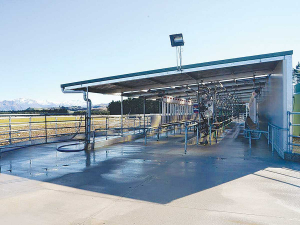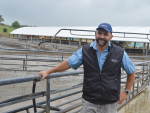The Ministry for Primary Industries New Zealand Code of Practice for the design and operation of Farm Dairies introduced new milk cooling standards over two years ago.
The rules apply have been applied to all farms since June 2018.
The rules state that raw milk must:
- be cooled to 10°C or below within four hours of the commencement of milking; and
- be cooled to 6°C or below within the sooner of:
- six hours from the commencement of milking, or
- two hours from the completion of milking; and
- be held at or below 6°C without freezing until collection or the next milking; and
- must not exceed 10°C during subsequent milkings.
In situations where there is continuous or extended milking, such as automated milking systems, the milk must enter the bulk milk tank at 6°C or below. “Continuous or extended milking” is defined as milking for six hours or longer from the time that milk first enters any bulk milk tank.
DairyNZ urges farmers to check the performance of current plate heat exchanger.
It urges farmers to consult their milk company to determine if the current system will meet the new milk chilling requirements. All dairy processors have tools to assess their suppliers’ vats chilling potential.
“If your current plate heat exchanger and refrigeration unit combination are not capable of meeting the new milk cooling regulations you may need to consider a secondary cooling option.
“These can involve a large capital outlay and long payback period but may come with the benefit of heat recovery, enabling you to save on hot water costs. Carefully evaluate all options to ensure the system is fit for purpose without over capitalising.”


















